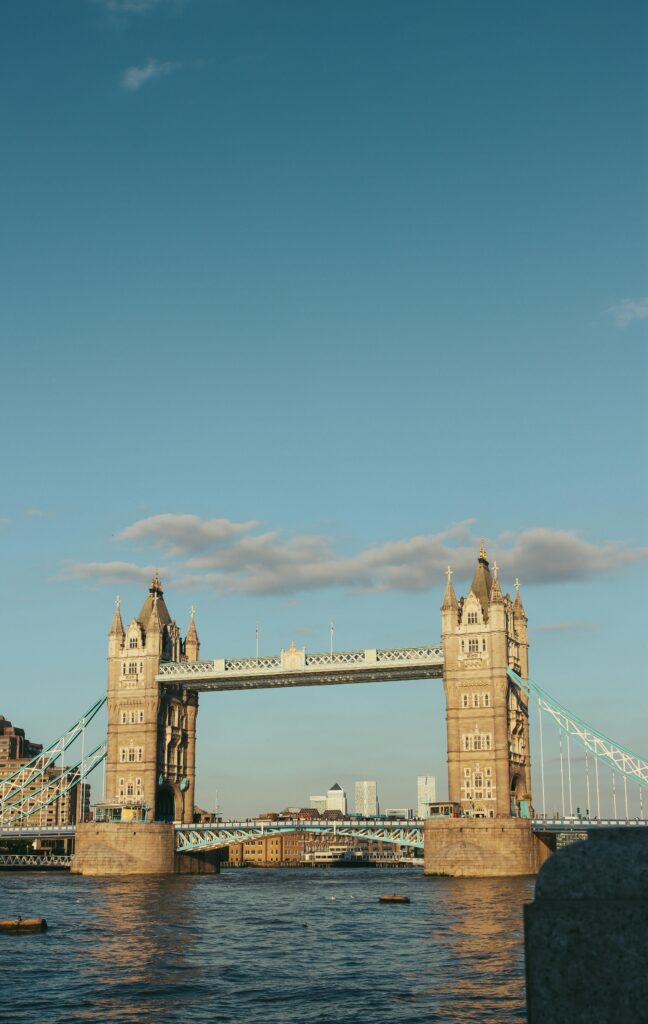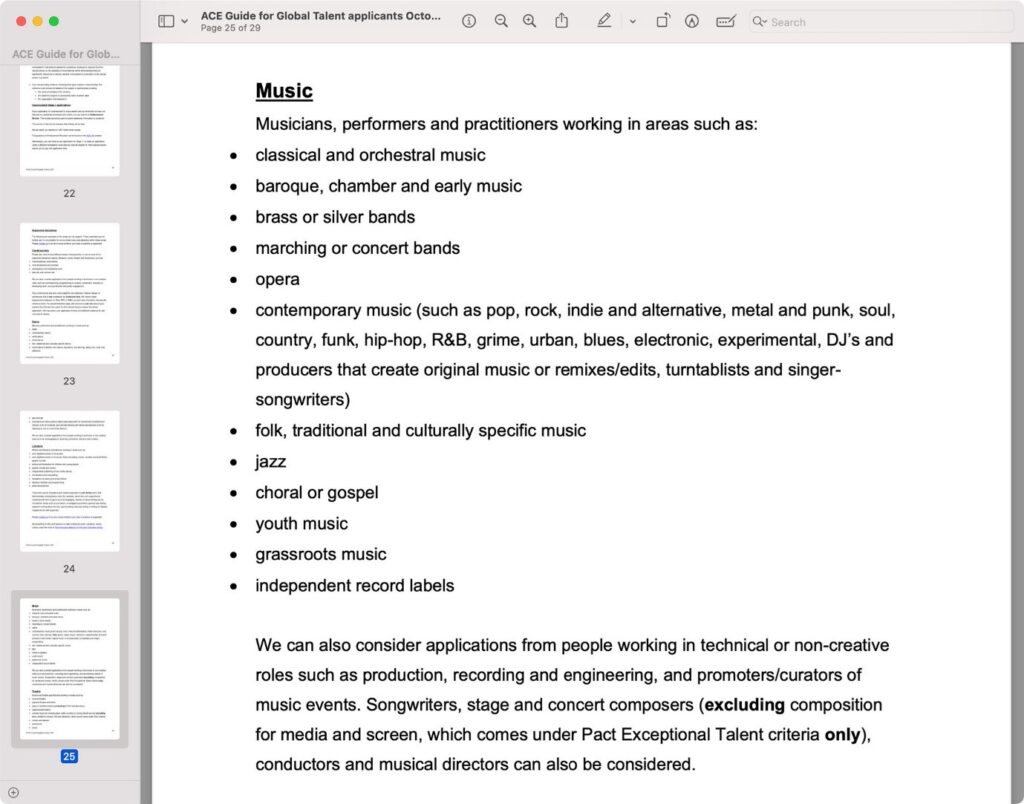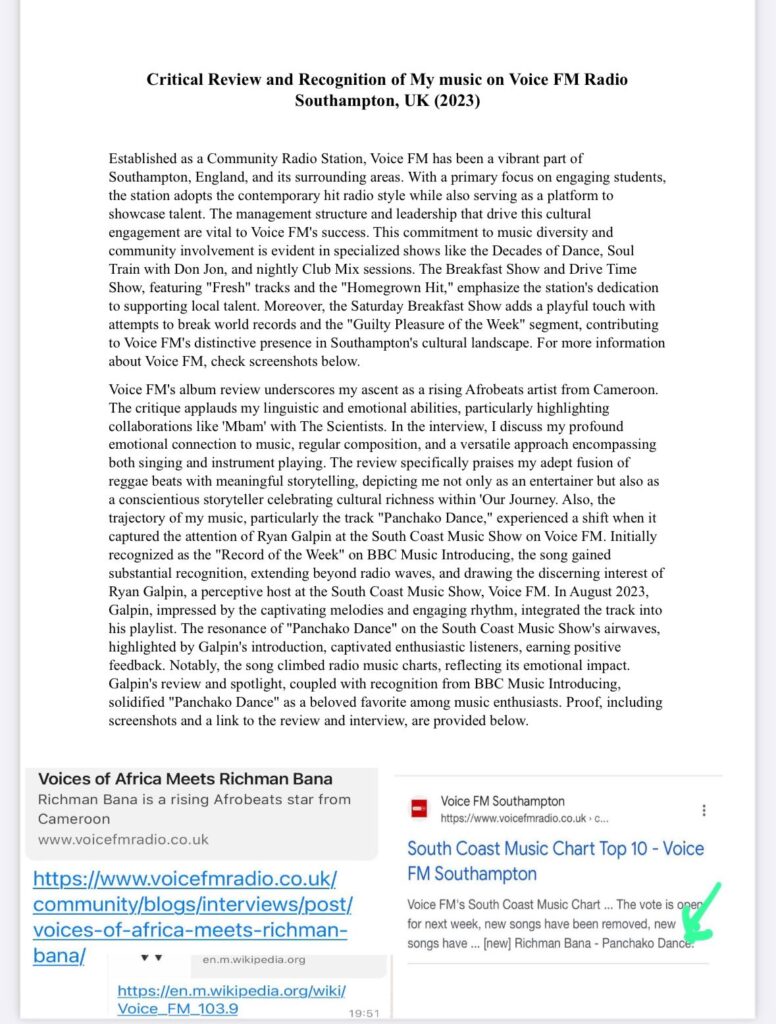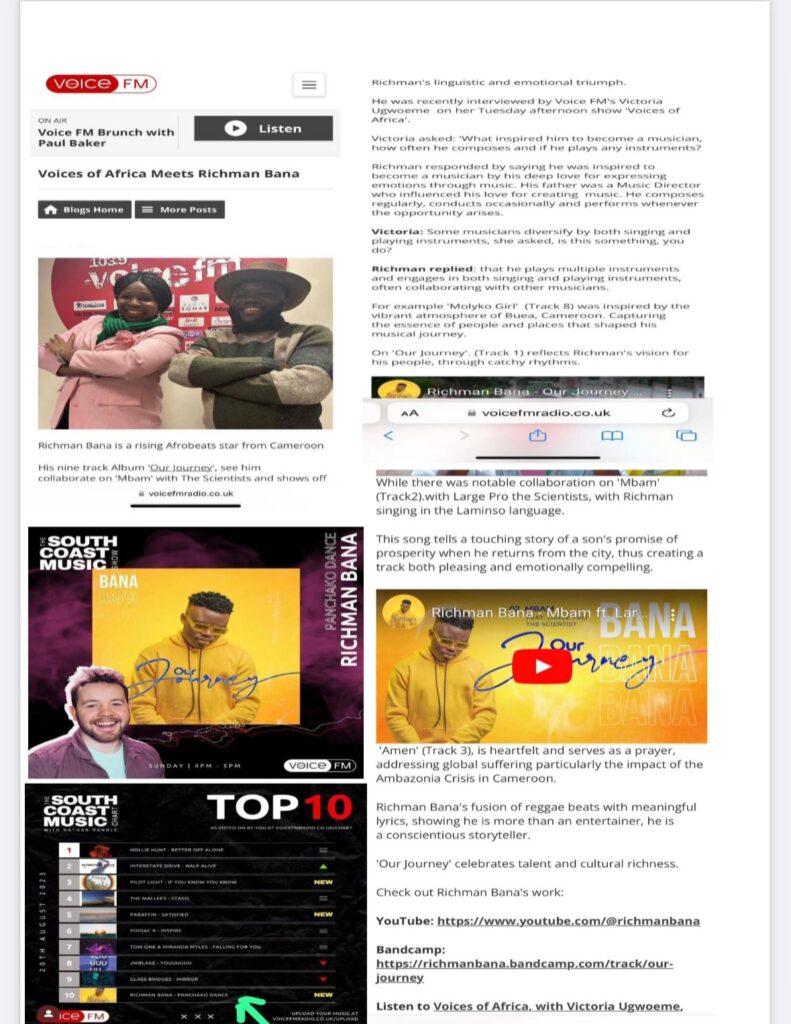How I Obtained a Global Talent UK Visa
A Complete Guide and My Story I got a Global Talent visa while I was in the UK on a skilled worker visa. This type of visa isn’t commonly known, so I want to explain it and tell you about my own experience. If you’re thinking about immigrating, this article could give you some helpful information.

London Bridge
Summary
The Global Talent visa is made for people in the fields of science, art, culture, and digital technology.
The visa allows you to live and work legally in the UK for up to five years, with the chance to extend, apply for permanent residency, and eventually, citizenship. It also allows you to bring your partner and children with you.
If you apply for the visa by yourself, it can cost around £6000 for the whole process. I personally went through this process on my own and will explain the costs below.
Once you finish the process, you’ll receive a Biometric Residence Permit (BRP) card. This card is used for tasks like opening a bank account or getting a tax identification number.
It took me four months to complete the process, including gathering documents and getting the BRP. I’ll provide a detailed timeline below.
This visa differs from a standard work visa. In the UK, the usual option for working in another country is called the Skilled Worker visa.
In theory, getting a Skilled Worker visa or a student visa might seem easier because most of the paperwork is handled by the employer or school. You can apply for a job or a school program from your home country, go through an interview, and get accepted to work or study in the UK.
However, there are some things to consider:
Not every company or profession qualifies for this visa. The government keeps a list of approved companies and professions. If yours isn’t on the list, you won’t qualify.
Even if a company is approved, they might not want to hire someone from abroad like you. There could be various reasons, like extra costs or internal rules.
With the Skilled Worker visa, you’re tied to one employer. If you want to change jobs, you have to leave the UK and start over. If you lose your job, you also have to leave. Plus, this visa doesn’t offer much social security, which can be tough for someone with a family.
You have to pass an English test, show proof of income, and have a certain amount of money in your bank account for the Skilled Worker visa.
On the other hand, the Global Talent visa is more flexible. You need to prove your talent, but you have more freedom. You can choose to work or not, switch jobs without restrictions, work freelance, or start your own business. You don’t need to show you’re good at English or meet specific income requirements.
As far as I know, there are only two restrictions with the Global Talent visa: you can’t work as a professional athlete, and you can’t get public funds. Apart from that, you can live and work however you want on this visa.
When you look at the requirements for this visa, you might see terms like “exceptional talent” or “acknowledged leader.” At first, it might seem intimidating. You might think, “Well, I’m not famous like that. Maybe this visa isn’t for me.”
But don’t be discouraged. You don’t need to be a global superstar. Even some success in your field could be enough. In my experience, this visa is more about your determination and ability to meet the criteria than just your talent.
The Global Talent visa has two categories: Exceptional Promise (for people who show potential) and Exceptional Talent (for recognized leaders). The main difference is that you can apply for permanent residency after 3 years with Exceptional Talent, but it takes at least 5 years with Exceptional Promise. So, Exceptional Talent is usually the better choice.
You get approval from a cultural institution in Stage 1 of the visa process. This is the most important and often the hardest part. If you apply based on an endorsement, you pay £524 when you apply and £192 later. Unfortunately, if your endorsement isn’t approved, you don’t get your money back.
Stage 2 involves applying at the visa application center after you get the endorsement. This is mostly a formality, and your visa will likely be approved. You also need to pay £192 for the visa and £1035 per year for health insurance.
You can apply from any country where you can stay for at least 6 months, but sometimes, you can apply from countries where you can stay for less time. If this is important to you, you should check it out.
Total cost:
| Service | Promise (5 years) | Talent (3 years) |
| Visa | £716 | £716 |
| IHS | £5175 | £3105 |
| Total: | £5891 | £3821 |
You don’t have to apply for the full length of the visa all at once. You can choose to have the visa for any period between 1 to 5 years. For example, if it’s difficult to pay for the insurance right away, you can choose a shorter period. But keep in mind that if you extend the visa later, you’ll have to pay an extra £716. So, paying for the whole period at once is the most economical choice.
Now, let’s go into more detail about the process and its costs.
Before you start gathering documents, it’s important to decide which field you’ll be applying under. As mentioned earlier, different endorsing organizations correspond to different fields, each with its own application requirements and details.
Here are the options available:
| Academia or research | Science; medicine; engineering; humanities |
| Arts and culture | Combined arts, dance, literature, music, theatre or visual arts; architecture; fashion design; film and television |
| Digital technology | Financial technology; gaming; cyber security; artificial intelligence |
I applied in the Arts and Culture category, specifically under Music, for roles like Musician, Music Producer or Events Promoter. The endorsing organization for my field is Arts Council England. It’s important to mention that all my experiences are related to this organization, as my application falls within this category. If you’re applying in a different field, make sure to research their requirements thoroughly.
You can find a complete list of requirements and the specific disciplines within the arts and culture field in the official guide provided by Arts Council England. Make sure to download and review this document carefully.

Here’s a breakdown of the requirements for Stage 1: Endorsement:
- Your Artistic CV
- Three letters of support from organizations with international professional recognition that you’ve previously worked with. These letters should explain how you met, your collaborations, achievements, and how you can contribute to the UK’s cultural scene. Emphasize your plans for the country in the short term. One letter must be from a UK organization, one from an international organization, and the third from either an organization or an individual respected in your field.
- Each letter should include the company’s logo, full legal address, date, signature, and a brief company profile or author’s biography. Only senior executives may sign these letters.
- Provide a draft when requesting recommendations to make it easier for them to adjust details and sign off, improving your chances of securing them.
- Ten supporting pieces of evidence of your professional activities, falling into at least two of these categories:
- Media recognition: independent reviews, critiques, or evaluations of your work via articles on websites or magazines.
- International awards: any awards or nominations highlighting your work’s quality.
- Proof of appearance: any relevant professional activities.
- There should be at least two media coverages. You can decide on the proportion of these documents as long as they don’t exceed ten in total.
- Each document should focus on one event or article and not exceed two A4 pages.
- Ensure all evidence is no more than five years old.
- Avoid using blogs or social media as evidence. Use websites or magazines only.
- Be mindful of your online presence as those handling endorsements may Google your name. Make sure your online content is relevant and reputable.
- There are no strict rules about document layout, but if you use a website screenshot as evidence, save the page through the print version to automatically insert the date and source link in the footers.
I can show you one of my pieces of evidence as an example, as there’s no confidentiality concern:


Here’s an example of one of my documents for proof of media recognition. The screenshot on the right is from the website. Pay attention to the headers and footers: they are necessary.
Please note that the document displays my stage name, Richman Bana, instead of my real name. This is acceptable: during the application, you can provide various versions of your first name alongside your stage name.
You might be thinking, “What if I don’t have an award, media mention, or any other required document?” This is indeed the main challenge of the visa! Remember the importance of determination I mentioned earlier? Write, search, network, inquire. There’s no one-size-fits-all solution, but I firmly believe that any obstacle can be overcome.
Once you have gathered all the documents, you can proceed to apply for endorsement through the Global Talent Endorsement page. You’ll need to fill out a detailed application form and pay the initial part of the visa fee. After completing these steps, you’ll receive a crucial address where you must submit all the documents. Attachments should not exceed a total size of 25 MB.
Here’s the breakdown of the final list of 13 documents I submitted to Arts Council England:
- Evidence 1. Media recognition
- Evidence 2. Media recognition
- Evidence 3. Media recognition
- Evidence 4. International award
- Evidence 5. Award Nomination
- Evidence 6. Proof of appearances
- Evidence 7. Proof of appearances
- Evidence 8. Proof of appearances
- Evidence 9. Proof of appearances
- Evidence 10. Proof of appearances
- Letter 1 (UK)
- Letter 2 (CAMEROON)
- Letter 3 (CAMEROON)
Understanding the requirements and gathering documents took me a little over a month. This timeline may vary for everyone: the more achievements you have, the smoother the document preparation process, and vice versa.
After submitting the documents, all that’s left is to wait. Speaking from experience, it’s quite an emotionally charged period.
I received a decision after seven weeks. From this point, the clock starts ticking: the endorsement is valid for 3 months. If you don’t proceed with the second stage within this timeframe, the endorsement will expire, requiring you to start the process again.
Step 2: Visa Application Centre During this stage, you aim to secure an appointment at the visa application centre. At the appointed time, you’ll submit your documents there. Similar to the previous step, you’ll need to complete an extensive application form and make the insurance payment at the end.
After the payment, you’ll have the chance to schedule an appointment on the visa application centre’s website. There are two entry methods: self-service and assisted service. In self-service, you independently upload your documents online, while in assisted service, you bring copies of your documents to the visa centre for scanning and online uploading. I chose the first option as it seemed more convenient for me.
Here are the documents I uploaded online:
Scans of all the passports I listed on the application form
Endorsement email
I received a successful stage 2 Global Talent Visa 1 week 6 days after applying using the priority method.
Indefinite Leave to Remain The visa marks the beginning of the journey, not the end. I’ve discussed what comes next, but it’s all theoretical, so it’s best taken with caution.
After spending a few years on your visa, you might qualify to apply for permanent residence, known as Indefinite Leave to Remain (ILR). ILR allows you to live in the UK without time restrictions and access social security benefits.
Top of Form
gov.uk/indefinite-leave-to-remain
For those in the Exceptional Promise category, it takes at least five years to qualify for Indefinite Leave to Remain (ILR), while for those in the Exceptional Talent category, it’s three years. However, this differs for dependents. They can only apply for ILR after five years, even if the main talent qualifies for Exceptional Talent and could apply after three years.
To obtain ILR, you must show income earned from your professional field related to your visa. I’m still figuring out the exact income requirements, but it seems that employment documents, receipts, and three months’ worth of bank statements are considered suitable evidence.
Meeting the ILR criteria also involves spending no more than 180 days outside the country per year and passing language and UK life tests.
Unlike the visa, a permanent residence permit doesn’t expire, but if you stay outside the UK for more than two years, it could be revoked.
Citizenship is the final milestone of this journey. You become eligible for citizenship after living in the UK for five years, including at least one year with ILR. It’s important to note that the actual time spent in the country matters, excluding time spent abroad.
gov.uk/apply-citizenship-indefinite-leave-to-remain
Once you finish, you’ll get a blue passport with the royal crest on it. This passport serves as both a replacement for the internal BRP document and a travel document for international trips.
The UK allows dual citizenship, but I’m unsure about the rules regarding having three citizenships and any potential consequences.
I hope this post helps anyone going through the Global Talent application process. Thanks for reading!
If you have any questions about your Global Talent application, feel free to message me.
I also want to sincerely thank everyone who supported me during this challenging time – it was definitely the toughest period in my life, and your support meant everything to me.
